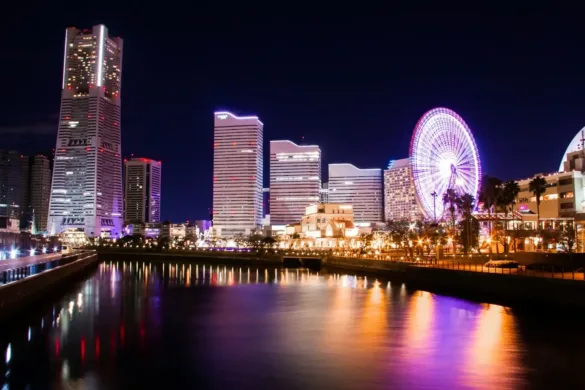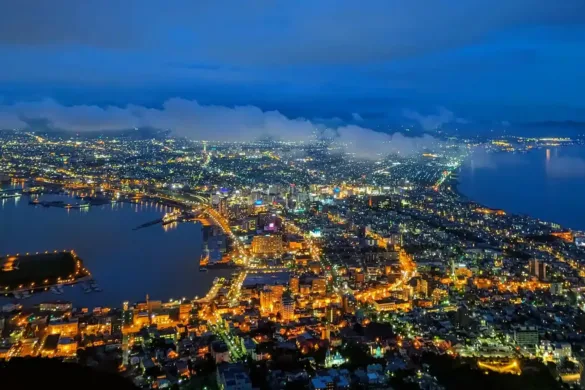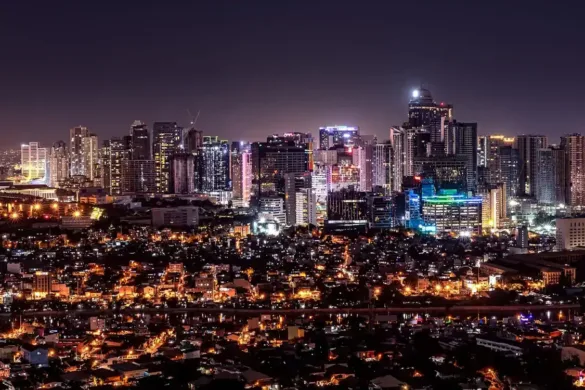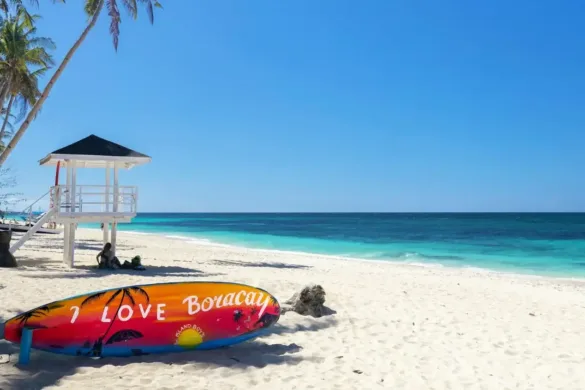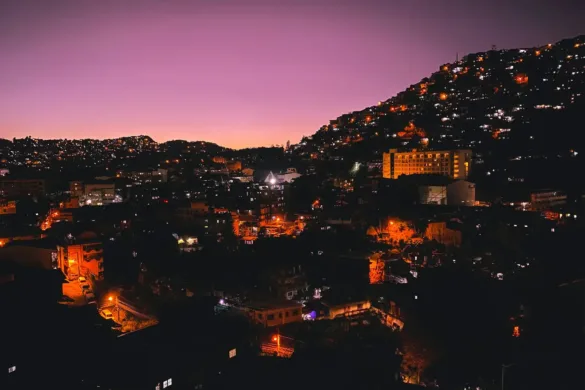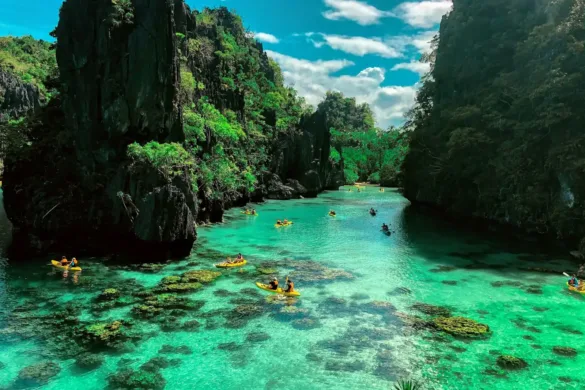Macau Travel Guide: Where East Meets West in StyleIntro to Macau Travel Guide
Once a sleepy Portuguese outpost, today’s Macau dazzles with a rare blend of heritage and high-rise, ancient alleyways and casino skylines. Tucked along the Pearl River Delta, just a short ferry from Hong Kong, Macau offers travelers centuries-old temples, colonial architecture, luxurious resorts, and some of the best food in Asia.
Start planning your trip with our complete Macau travel guide — your essential resource for discovering the culture, cuisine, and experiences of this compact but captivating destination.
💡Quick Facts:
Continent: Asia
Country: Macau (SAR of China)
Area: 33 km² (12.7 mi²)
Population: ~683,000
Density: ~20,700/km² – one of the highest in the world
Capital: N/A – Macau is a single urban area
Regions/Subregions: Macau Peninsula, Taipa, Cotai, Coloane
Language(s): Cantonese (official), Portuguese (official), Mandarin, English widely spoken
Currency: Macanese Pataca (MOP); Hong Kong Dollar also accepted
Time Zone(s): China Standard Time (UTC+8)
Airports: Macau International Airport (MFM)
Climate: Humid subtropical – hot summers, mild winters
Known For: Casinos, UNESCO heritage, food, colonial architecture, luxury hotels
🛂Arrival Info:
Visitors from over 75 countries—including the US, UK, EU, Canada, Australia, and most of Asia—can enter Macau visa-free for stays ranging from 14 to 180 days.
Visa-on-arrival is available for select nationalities not covered by visa exemption.
To confirm your requirements, check with the Macau Immigration Department: www.fsm.gov.mo.
Your passport must be valid for at least 90 days beyond your intended stay.
💉Health Info:
No vaccines are required to enter Macau, but routine immunizations and Hepatitis A are recommended.
Medical facilities are modern, especially in public hospitals like Conde S. Januário Hospital. English is spoken by many doctors in private clinics.
Travel health updates — get coverage here
Stay Informed with Official Updates: World Health Organization – International Travel and Health | Centers for Disease Control and Prevention – Global Travel Health
🚨Travel Advisory:
Safety Level: Very safe
Risks: Low; watch for tourist scams in casino areas
Local Stability: Politically stable; protests rare
Stay Informed with Official Updates: US Travel Advisory | UK Foreign Travel Advice
📅Holidays:
Chinese New Year (Jan/Feb): Multi-day celebrations with lion dances and fireworks.
Ching Ming Festival (April): Families pay respects to ancestors at gravesites.
Labour Day (May 1): Nationwide public holiday with local events.
Mid-Autumn Festival (Sept/Oct): Known for lantern displays and mooncakes.
Macau SAR Establishment Day (Dec 20): Celebrates Macau’s return to China in 1999.
Expect closures of government offices and reduced public services during major holidays.
💰Money Matters:
Currency: Macanese Pataca (MOP); Hong Kong Dollar (HKD) is also widely accepted
ATMs: Easily accessible; many dispense both MOP and HKD
Card usage: Credit cards accepted in hotels and casinos; cash preferred at small vendors
Duty-free limits: 1 liter of alcohol, 200 cigarettes or 50 cigars
Tipping: Not expected, but 5–10% is appreciated in restaurants or taxis
✈️Airports:
Main Airport: Macau International Airport (MFM) – macau-airport.com
Location: Taipa Island
One runway; serves flights from East and Southeast Asia
Hub for Air Macau and a base for low-cost carriers
Macau is also accessible by ferry from Hong Kong or via the Hong Kong-Zhuhai-Macau Bridge by road.
🚍Transport:
Buses: Inexpensive and comprehensive; routes in Chinese and Portuguese
Free Casino Shuttles: Frequent service from airport and ferry terminals
Taxis: Affordable; flag down or book by phone
Walking: Best in historic center; Cotai is more spread out
Ride-Share: No Uber; local apps only
Driving: Not recommended – traffic and limited parking
📶Connectivity:
SIM/eSIM: Available at airport, ferry terminals, and convenience stores
Providers: CTM, Three, SmarTone
Wi-Fi: Free Wi-Fi Go service in major tourist areas and hotels
Note: Censorship-free internet (unlike mainland China)
📜Laws & Etiquette:
Legal Drinking Age: 18
Casinos: Open to tourists 21+; ID required
Dress Code: Casual, but respectful in temples and casinos
LGBTQ+ Travelers: Generally safe, low-profile culture
Cultural Tips: Avoid political discussions about China; respect religious sites and elders
🛡️Emergency Info:
Emergency Services: 999 (police, fire, ambulance)
Police Station: On Avenida da Praia Grande
Tourist Police: Active in popular zones
Embassy Help: Foreign consulates are often in nearby Hong Kong
Travel Insurance Tip: Cover for delays, health, and valuables is essential
🌦️Weather:
Climate: Humid subtropical
Summer (May–Sept): Hot and wet; 28–33°C (82–91°F), typhoon risk
Winter (Dec–Feb): Mild and dry; 12–18°C (54–64°F)
Best Months: October–December for pleasant temperatures and low humidity
Weather Forecast
Macau by Region – Where to Go
Macau is divided into three main geographic zones, plus a few outlying islands. Each district carries a unique personality — from the colonial charm of the old city to the flash and glamour of the Cotai Strip.
Macau Peninsula
The historic heart of the city, where cobbled lanes, baroque churches, and incense-filled temples coexist with local markets and neon-lit streets.
- Senado Square – The city’s most iconic plaza, paved in traditional Portuguese wave-pattern tiles and surrounded by pastel-colored colonial buildings.
- Ruins of St. Paul’s – Macau’s most photographed site — a hauntingly beautiful façade of a 17th-century cathedral.
- Mount Fortress & Macau Museum – Offering sweeping views over the city and a deep dive into Macanese heritage.
- Rua da Felicidade – A restored red-windowed street once known for brothels, now lined with food stalls and souvenir shops.
Taipa
A bridge away from the peninsula, Taipa mixes historic village life with modern shopping and resort indulgence.
- Taipa Village – Narrow alleys filled with Portuguese mansions, Chinese temples, and beloved local eateries.
- Carmel Garden & Church – A photogenic Catholic church beside a romantic public park.
- The Taipa Houses-Museum – Five preserved colonial homes reflecting Macanese lifestyle in the early 20th century.
Cotai
The artificial strip of land between Coloane and Taipa — now a glittering center of entertainment, shopping, and global gaming.
- The Cotai Strip – Modeled after Las Vegas, it’s home to mega resorts like The Venetian Macao, Galaxy Macau, and MGM Cotai.
- House of Dancing Water – A world-class aquatic performance blending acrobatics and visual effects (check current show status).
- City of Dreams – Casino, retail, and dining all under one ultra-modern roof.
Coloane
A peaceful escape at Macau’s southern edge, known for forested hills, beaches, and colonial-era shrines.
- Hac Sa Beach – Macau’s largest natural beach, known for its dark volcanic sand.
- A-Ma Cultural Village – A mountaintop complex honoring the sea goddess Mazu, blending Taoist and Buddhist design.
- Lord Stow’s Bakery – The legendary origin of Macau’s egg tart, nestled in Coloane Village.
Macau Travel Guide: Top Places to Visit
Whether you’re chasing history, luxury, or culinary gems, Macau packs incredible variety into a small area. Here are the top sites by theme.
Cultural Landmarks
- Ruins of St. Paul’s – A UNESCO World Heritage Site and the enduring symbol of Macau.
- A-Ma Temple – Dating back to 1488, this temple honors the sea goddess for whom Macau is named.
- Senado Square – The colonial core of the city, surrounded by 19th-century civic buildings.
Nature & Peaceful Retreats
- Coloane Trails – A network of walking paths through forested hills with ocean views.
- Hac Sa and Cheoc Van Beaches – Serene spots to unwind far from the city buzz.
- Taipa’s Garden of Flower City – A tranquil urban park with Chinese landscaping.
Entertainment & Luxury
- The Venetian Macao – Gondola rides, shopping, and casino games under a recreated Italian sky.
- Galaxy Macau – Family-friendly water parks and fine dining in a glittering mega-resort.
- Studio City – Offers a Batman Dark Flight ride, Ferris wheel, and luxury accommodations.
Local Flavor
- Taipa Village – Street eats, colonial lanes, and cultural crossover.
- Rua do Cunha – A pedestrian lane famous for almond cookies, pork chop buns, and egg tarts.
- Red Market & Local Wet Markets – A look into everyday Macanese life, with fresh produce and Cantonese street fare.
How to Choose Where to Go in Macau
Though compact, Macau offers distinct travel experiences based on your preferences.
- For heritage and history – Stay on the Macau Peninsula to explore churches, temples, and museums.
- For luxury and entertainment – Book a resort on the Cotai Strip for shows, casinos, and fine dining.
- For peaceful nature and local life – Spend time in Coloane, especially if you enjoy quiet walks and village charm.
- For food-focused travel – Wander through Taipa Village, where Cantonese and Portuguese flavors blend beautifully.
- For a quick day trip from Hong Kong – Focus on central Macau and Senado Square with a lunch stop in Taipa.
How to Get Around Macau
Macau’s small size makes it easy to explore in one trip, though transport varies by district.
- Walking – Most neighborhoods, especially the historic peninsula, are best explored on foot.
- Public Buses – Efficient and inexpensive. Most stops display English and Chinese.
- Taxis – Plentiful and metered. However, some drivers speak only Cantonese or Mandarin.
- Free Casino Shuttles – Major resorts offer free shuttles between the ferry terminal, airport, and Cotai Strip.
- Light Rapid Transit (LRT) – Covers part of Cotai and Taipa, with expansion planned.
Tip: No Octopus Card here — you’ll need MOP cash or exact change for buses.
Travel Budget & Costs in Macau
Macau can be done affordably or opulently, depending on where you sleep and eat.
Estimated Daily Costs:
- Budget: $50–$80 (guesthouse, local eats, bus rides)
- Mid-range: $100–$180 (3-star hotel, museum entries, nicer restaurants)
- Luxury: $200+ (resort stay, casino nightlife, fine dining)
Sample Prices:
- Egg tart or pork chop bun: $2–$4
- Lunch at a local cha chaan teng: $5–$10
- Dinner at a Cotai resort: $30–$100+
- 4-star hotel in Cotai: $150–$250
- Entry to a major attraction: $10–$40
Save money by staying in Taipa or the peninsula instead of Cotai, and by eating at local bakeries and noodle shops.
Best Time to Visit Macau
Macau’s subtropical climate makes it a year-round destination, but some months are better than others.
- Autumn (October–December) – Dry, sunny, and perfect for outdoor sightseeing. Peak travel season.
- Spring (March–May) – Warm and pleasant, with festivals like A-Ma Day and Easter processions.
- Winter (January–February) – Cooler (10–18°C) with minimal rain. Chinese New Year brings festive parades and fireworks.
- Summer (June–September) – Hot, humid, and subject to typhoons. Indoor attractions and casinos are ideal.
Avoid public holidays if you want to skip crowds and inflated hotel rates.
Must-See Experiences in Macau
For an unforgettable trip, weave these sensory-rich experiences into your Macau itinerary.
- Wander the Ruins of St. Paul’s and Mount Fortress at golden hour
- Eat a freshly baked Portuguese egg tart from Lord Stow’s or Margaret’s Café
- Sip a pastel de nata with milk tea on a colonial veranda in Taipa
- Watch a water-based show like “The House of Dancing Water” in Cotai
- Stroll through the incense-filled A-Ma Temple on a quiet morning
- Cycle or hike through Coloane’s leafy hills and coastal trails
- Try your luck at one of Macau’s glamorous casinos
- Visit the Maritime Museum and Fisherman’s Wharf to understand Macau’s sea-bound heritage
- Take a Macanese cooking class or join one of the many Macau food tours
Looking for curated outings? Explore top-rated Macau tours that include heritage walks, food trails, and epic things to do in Macau, or day trips from Hong Kong.
Best Travel Itineraries in Macau
1-Day Quick Visit from Hong Kong
- Morning: Ruins of St. Paul’s, Senado Square, lunch in Taipa
- Afternoon: A-Ma Temple, Taipa Village stroll, egg tarts
- Evening: Cotai Strip lights, Venetian Macao, return ferry
2-Day Heritage + Luxury Itinerary
- Day 1: Historic Macau Peninsula sights, local dinner, night market
- Day 2: Cotai casinos, House of Dancing Water show, spa or shopping
3–4 Day Extended Stay
- Day 1: Senado Square, museums, and sunset at Mount Fortress
- Day 2: Taipa cultural sites and Coloane beaches
- Day 3: Cotai Strip entertainment and fine dining
- Optional Day 4: Hiking in Coloane or shopping in Macau Tower mall
Each Macau itinerary offers a balance of culture, relaxation, and excitement — customizable for your travel style.
Local Cuisine & Culinary Experiences
Macau’s food scene is legendary — a true fusion of Portuguese, Chinese, and Southeast Asian influences.
Top Dishes to Try:
- Minchi – A Macanese comfort food of minced beef/pork with soy sauce and potatoes.
- African Chicken – A Portuguese-African-Macanese fusion dish with spicy peanut sauce.
- Pork Chop Bun – Often dubbed the “Macanese burger,” best from street vendors.
- Portuguese Egg Tart – Flaky, creamy, caramelized — Macau’s most famous treat.
- Codfish Balls (Bacalhau) – A legacy of Portuguese sailors.
- Claypot Rice & Cantonese Soups – Found in Taipa’s casual eateries.
Dining Experiences:
- Lord Stow’s Bakery (Coloane) – For the original egg tart.
- Albergue 1601 – Romantic Macanese restaurant in a colonial courtyard.
- Rua do Cunha – A culinary street in Taipa where you can snack your way through Macanese flavors.
Taste your way through Macau by joining a food-focused walking tour or visiting during one of the city’s food festivals.
Travel Safety & Cultural Etiquette in Macau
Macau is extremely safe, clean, and welcoming — but cultural respect goes a long way.
Safety Tips:
- Petty crime is rare; still, stay alert in crowded areas.
- Tap water isn’t potable — use bottled or boiled water.
- Typhoon warnings are issued in summer; check alerts.
Cultural Etiquette:
- Dress modestly when visiting temples and churches.
- Use both hands when giving or receiving items.
- Speak softly in public transport and indoor settings.
- While tipping isn’t customary, it’s appreciated in upscale restaurants and hotels.
English is widely understood in tourist zones, though locals primarily speak Cantonese and Mandarin.
Where to Go Next – Pair Macau with These Destinations
Extend your Macau journey with regional highlights accessible by ferry or flight.
- Hong Kong – Just one hour away, Hong Kong offers skyline views, diverse neighborhoods, and endless culinary adventures.
- China – Connected by land, Zhuhai is quieter and great for gardens and seafood.
- Taiwan – A quick flight away, offering rich culture, night markets, and mountain retreats.
- Vietnam – Combine Macau’s charm with a Southeast Asia loop via Hanoi or Da Nang.
- Thailand – Fly to Bangkok or Phuket for temples, beaches, and cuisine.
See more on our Travel Guide and Tour Guide for more detailed planning, including top attractions, local tips, transportation options, and essential travel information.
Final Planning Checklist for Macau
- Confirm passport validity and any visa requirements (many countries enjoy visa-free entry)
- Book key experiences in advance — shows, fine dining, or spa appointments
- Choose your base: Cotai for luxury, Taipa for charm, Peninsula for history
- Download Macau Bus Guide app or Google Maps for navigation
- Arrange Hong Kong-Macau ferry or bridge transfer if coming by land
- Carry local currency (MOP) for small purchases
- Dress comfortably for humid weather, with layers for air-conditioned venues
- Back up travel documents and contact info digitally
- Learn basic greetings in Cantonese or Portuguese
- Respect cultural norms, especially in temples and family-owned restaurants
Explore Macau with Confidence
Macau may be small, but it leaves a deep impression. From European plazas to incense-shrouded temples, from glitzy casinos to quiet sea villages, the city thrives on contrast. Its story is told not just in museums, but in the flavor of a pork chop bun, the tiles beneath your feet, and the scent of spices in the air.
Explore Macau with confidence using our expert tips, local insights, and region-by-region planning tools.
For more expert travel tips, practical strategies, and trusted tools — visit our Homepage and get inspired for your next trip.

